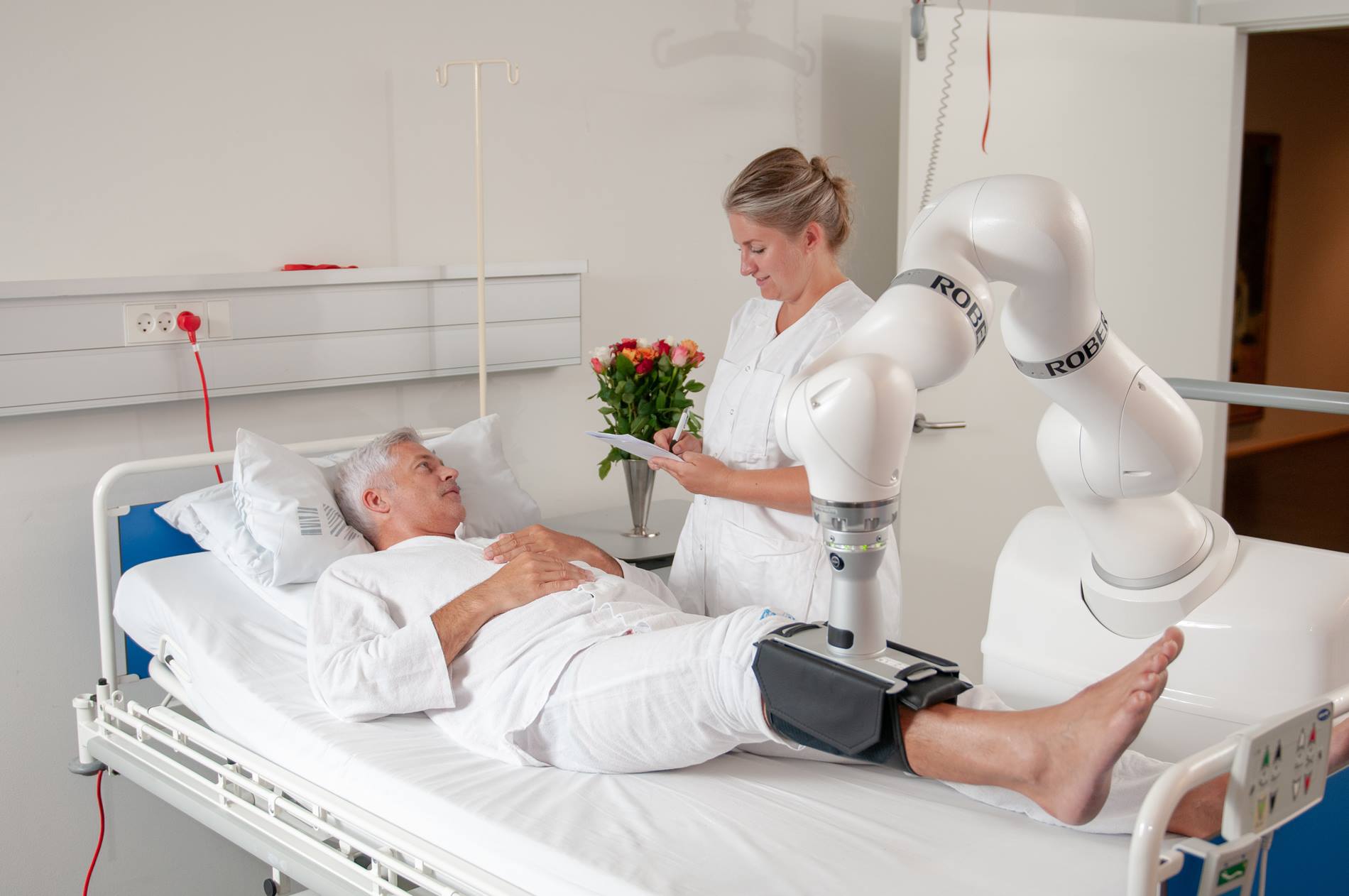Robotics and artificial intelligence are making their way into more and more areas - and can provide support and take over tasks in an aging society. Is there also a trend toward using robotics in care?
Dr. Andreas Keibel: "In general, there is a great
need for new technologies in the care sector. The effects of demographic change are already visible today, as is the
acute shortage of nursing staff. There is a great need for action here - also with a view to the future. The
use of AI/robotics in nursing and care has been the subject of intensive international research for decades.
When using robotics in nursing, the
initial focus could be on supporting operations so that employees have more time for actual care and more budget can be shifted in favor of nursing staff. One possible application here is automated logistics, for example. This could be used to provide a wide
variety of goods such as meals, consumables or even beds in a timely and accurate manner. These are the first quickly achievable areas of application that do not involve direct interaction of robotics and AI with patients or residents.
As a supplier of robots and automation solutions, KUKA is primarily active in industrial production. Are there also specific projects and applications from KUKA in the field of care and healthcare?
Dr. Andreas Keibel: "In general, KUKA's technologies help to relieve people of dangerous, monotonous, or strenuous tasks. Robotics can also provide an answer to the increasing shortage of skilled workers and demographic change. In medical robotics, KUKA offers solutions for a wide variety of medical robot applications, for the benefit of patients. One example is our sensitive lightweight robot LBR Med, which was developed specifically for medical technology. The company Life Science Robotics has used it, for example, to develop the rehabilitation robot application ROBERT, for robot-assisted therapy to mobilize patients. This robot-assisted therapy relieves the nursing staff."
You have already indicated that not every activity in nursing can be automated. What tasks can robots cover and what is difficult?
Nadine Reißner: "In general, a distinction can be made between nursing tasks and non-value-adding activities that keep nurses from their central work. These activities include documentation and administration as well as various logistics tasks. The nature of nursing activities is that people interact with people here and social connections are established. A nurse not only hands out food and puts the tray down, but also checks the patient's condition and interacts with him or her - thus recognizing how the patient is doing. The limits are with task areas that rely on social skills, such as empathy. These interpersonal levels remain the preserve of humans. AI and robotics could provide support for logistics tasks or documentation."
What new developments do you expect in the near and distant future? How will AI change care?
Dr. Andreas Keibel: "Digitization is the basis for the introduction of more technology into care. For example, AI can facilitate real-time evaluation of sensors to assess situations and environments in nursing homes, for example. This can help mobile robots move around facilities to restock shelves or keep order. AI could also help to recognize people, assess their condition and in this way relieve staff."














